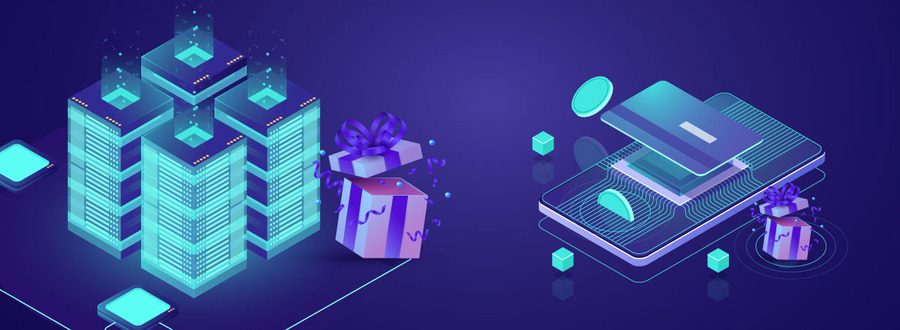
The Impact of Blockchain on the Loyalty Rewards Industry
The loyalty rewards industry has been undergoing significant transformations with the rise of blockchain technology. Blockchain, a decentralized and transparent ledger system, has the potential to revolutionize loyalty rewards programs, addressing the existing challenges and opening up new opportunities for businesses and customers alike. In this article, we will explore the impact of blockchain on the loyalty rewards industry, its benefits, challenges, and real-world examples of blockchain-based loyalty rewards platforms.
Introduction to Loyalty Rewards Industry
Loyalty rewards programs have long been used by businesses to incentivize customer engagement and foster brand loyalty. These programs typically involve offering rewards, such as points or discounts, to customers based on their purchasing behaviors or other predefined actions. While loyalty programs have been successful to some extent, they are not without their challenges.
Traditional Challenges in the Loyalty Rewards Industry
One of the primary challenges faced by traditional loyalty rewards programs is the lack of transparency and trust. Customers often find it difficult to track their earned rewards, and there is a lack of clarity regarding the redemption process. Additionally, these programs are usually limited to a specific business or a group of partners, which restricts the flexibility for customers to utilize their rewards across different brands or industries.
Another challenge is the high costs and inefficiencies associated with managing and administering loyalty rewards programs. The centralized nature of these programs requires significant resources and infrastructure to operate, resulting in increased costs for businesses. Moreover, traditional systems lack interoperability, making it difficult for customers to transfer or combine their rewards between different loyalty programs.
Understanding Blockchain Technology
To fully grasp the impact of it on the loyalty rewards industry, it is essential to understand the fundamentals of blockchain technology itself.
How Blockchain Works
Blockchain is a distributed ledger technology that allows multiple parties to maintain a shared and tamper-proof record of transactions or information. It consists of blocks of data, each containing a set of transactions, which are linked together in chronological order, forming a chain. The decentralized nature of it ensures that no single entity has control over the entire network, making it highly resistant to fraud and manipulation.
Key Features and Benefits of Blockchain
Blockchain technology offers several key features and benefits that make it suitable for revolutionizing loyalty rewards programs:
- Immutability: Once data is recorded on this technology, it cannot be altered or tampered with. This ensures the integrity of loyalty rewards transactions and prevents fraud.
- Transparency: It provides transparency by allowing all participants in the network to view and verify transactions. This transparency builds trust among customers and eliminates doubts about the accuracy of reward balances.
- Decentralization: Unlike traditional loyalty rewards programs that are managed by a central authority, it operates in a decentralized manner. This removes the need for intermediaries, reduces costs, and eliminates the risk of a single point of failure.
- Smart Contracts: Its platforms often support the use of smart contracts, which are self-executing agreements with predefined rules. Smart contracts can automate reward distribution, redemption, and other processes, ensuring greater efficiency and accuracy.
- Interoperability: It has the potential to create a universal loyalty rewards ecosystem where rewards earned from one program can be easily used in another. This interoperability eliminates the limitations of traditional programs and provides customers with more flexibility in utilizing their rewards.
The Role of Blockchain in Loyalty Rewards Programs

Blockchain technology can address the traditional challenges faced by loyalty rewards programs and introduce significant improvements. Here are some key ways in which blockchain can impact loyalty rewards:
- Enhanced Security and Privacy: Blockchain’s immutability and cryptographic algorithms ensure the security and privacy of loyalty rewards transactions. With blockchain, customers can have confidence in the integrity of their reward balances and the protection of their personal information.
- Improved Transparency and Trust: It provides a transparent and auditable record of loyalty rewards transactions. Customers can easily track their reward earnings and redemptions, and businesses can ensure the fairness and accuracy of their programs. This transparency fosters trust between customers and businesses, enhancing the overall loyalty experience.
- Increased Program Interoperability: It enables the seamless transfer and exchange of loyalty rewards between different programs and brands. Customers can combine rewards from multiple programs, providing them with more options and flexibility in redeeming their rewards. This interoperability expands the value and utility of loyalty rewards for customers.
- Reduction of Costs and Inefficiencies: By eliminating intermediaries and streamlining processes through automation, it can significantly reduce the costs and inefficiencies associated with managing loyalty rewards programs. Businesses can allocate resources more effectively, resulting in a more cost-effective and sustainable loyalty ecosystem.
Examples of Blockchain-Based Loyalty Rewards Platforms
Several blockchain-based loyalty rewards platforms have emerged, showcasing the potential of this technology in transforming the industry. Let’s explore three notable examples:
- Loyyal: Loyyal is a blockchain platform that enables businesses to create and manage their loyalty rewards programs. It offers enhanced security, real-time tracking of rewards, and the ability to exchange rewards across different programs.
- BitRewards: BitRewards leverages this technology to create a universal loyalty and rewards ecosystem. Customers can earn and redeem rewards from various participating businesses, providing them with a broader range of choices.
- Liven: Liven is a blockchain-based platform that focuses on the hospitality industry. It allows customers to earn and spend rewards seamlessly across different restaurants and venues within the network, fostering loyalty and encouraging repeat visits.
Potential Benefits and Challenges of Implementing Blockchain in Loyalty Rewards
Implementing blockchain in loyalty rewards programs offers several potential benefits, but it also comes with challenges that need to be considered:
Benefits for Customers
- Greater transparency and control over reward balances
- Increased flexibility and usability of rewards across different brands
- Enhanced security and privacy of personal information
- Improved user experience through automation and real-time tracking
Benefits for Businesses
- Improved customer loyalty and engagement
- Reduced costs associated with program management and infrastructure
- Enhanced customer acquisition and retention through a more enticing rewards ecosystem
- Enhanced data analytics and insights to understand customer behavior and preferences
- Streamlined processes and reduced administrative burdens
Challenges and Considerations
- Adoption and integration: Implementing this technology requires businesses to adopt new systems and integrate them with existing infrastructure, which can be complex and time-consuming.
- Scalability: As loyalty rewards programs can involve a large number of participants and transactions, ensuring that this technology can handle scalability is crucial.
- Education and user experience: Customers and businesses need to be educated about this technology and its benefits in the context of loyalty rewards. Additionally, user interfaces and experiences must be designed to be intuitive and user-friendly to encourage adoption.
Future Outlook and Adoption of Blockchain in Loyalty Rewards
The future of blockchain in the loyalty rewards industry looks promising. Several trends indicate increasing adoption and impact:
- Growing interest from businesses: More businesses are recognizing the potential of this technology to transform their loyalty rewards programs and gain a competitive edge.
- Partnerships and collaborations: Its platforms and loyalty rewards providers are forming partnerships to accelerate adoption and create more extensive ecosystems.
- Technological advancements: Ongoing advancements in this technology, such as the development of scalable and energy-efficient protocols, will further facilitate its implementation in loyalty rewards.
Blockchain has the potential to revolutionize the loyalty rewards industry by addressing the challenges of traditional programs and introducing new possibilities for customers and businesses alike. By leveraging enhanced security, transparency, and interoperability, loyalty rewards programs can become more engaging, efficient, and valuable for all stakeholders.
In conclusion, the impact of blockchain on the loyalty rewards industry is significant and transformative. As businesses explore the potential of this technology, we can expect to see more innovative and customer-centric loyalty programs emerge, offering increased benefits, flexibility, and trust. Embracing this technology in loyalty rewards is a step towards building a future where loyalty is rewarded in a seamless and rewarding manner.
FAQs
1. How does blockchain improve the security of loyalty rewards programs?
Blockchain ensures the security of loyalty rewards programs through its immutability and cryptographic algorithms. Once data is recorded on the blockchain, it cannot be altered or tampered with, providing a transparent and secure record of transactions.
2. Can blockchain help prevent fraud in loyalty rewards programs?
Yes, blockchain technology can help prevent fraud in loyalty rewards programs. The decentralized nature of blockchain, along with its transparent and auditable record of transactions, makes it highly resistant to fraudulent activities, enhancing the security and integrity of loyalty rewards programs.
3. Will implementing blockchain increase the costs for businesses?
While implementing blockchain technology may involve initial costs, businesses can experience long-term cost savings due to reduced administrative burdens, streamlined processes, and the elimination of intermediaries. Blockchain has the potential to make loyalty rewards programs more cost-effective and efficient.
4. What are some other industries benefiting from blockchain technology?
Blockchain technology has found applications in various industries, including finance, supply chain management, healthcare, and voting systems. Its potential for secure and transparent record-keeping has led to increased efficiency and trust in these sectors.
5. Is blockchain technology scalable for large-scale loyalty rewards programs?
Scalability is a consideration when implementing blockchain for large-scale loyalty rewards programs. However, ongoing advancements in blockchain protocols and consensus mechanisms are addressing scalability challenges, making it increasingly feasible to scale blockchain networks to accommodate a larger number of participants and transactions.
I’m a professional writer. I have been writing about Cryptocurrencies for more than 2 years now and I consider myself one of the best authors in this field. I am very passionate about this technology and I believe that it will change the world as we know it. If you want to learn more about cryptocurrencies, you should definitely check out my work!


